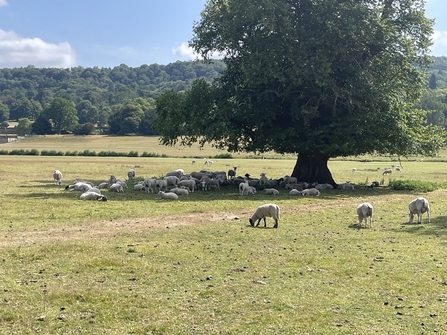With over 70% of Derbyshire’s land currently used for agriculture, farming plays a vital role in shaping our shared future, and in creating the spectacular landscapes that inspire people and demonstrate what's economically possible when we work with natural processes. From the food we eat to the health of our soils, rivers, and wildlife, the choices we make around land use directly affect our ability to build a wilder, more climate-resilient county.
For decades, farmers have faced growing pressures: to produce more food at lower prices, with shrinking margins and increasingly unpredictable weather. Intensification and extractive practices weren’t choices made lightly, they’ve often been necessary responses to market demands, policy shifts and consumer expectations.
But this model is reaching its limits, we need to create conditions where working with nature becomes the most profitable choice for farmers, not just the right thing to do - for nature, for the climate, and for farming itself. Farmland birds like turtle doves and corn buntings have vanished. Peatlands have been drained. Soil and water health is declining, and our resilience to extreme weather events is decreasing.
Nature Loss: The Biggest Threat to UK Food Security
The decline in nature is predicted to result in a 12% loss of UK GDP in the coming years – more than the impact of both the 2008 financial crisis and the Covid-19 pandemic combined. Unmitigated climate change is set to cost the UK billions each year. Nature is critical infrastructure and sustainable food production in the UK needs nature – it needs healthy soils, clean and plentiful water, and thriving insect populations because they are the foundation of farming.
The UK Government’s latest Food Security Report 2024 reiterated that the main threats to UK food security are climate change and ecological breakdown. “Long term decline in the UK’s natural capital is a pressing risk to UK food production,” and, “Climate change, nature loss and water insecurity pose significant risks to the ability of global food production to meet demand over the longer term.” This means that the restoration of nature – including natural habitats, ecosystems, rivers, uplands, peatlands soils and much, much more – is critical to feed ourselves in the future.
At Derbyshire Wildlife Trust, we believe that farmers are essential partners in delivering nature’s recovery. That’s why we’re working alongside them to create demonstration landscapes that prove how enhancing natural capital can provide better economic returns than conventional approaches alone and are sources of inspiration and practical knowledge that seed new approaches across working landscapes.


